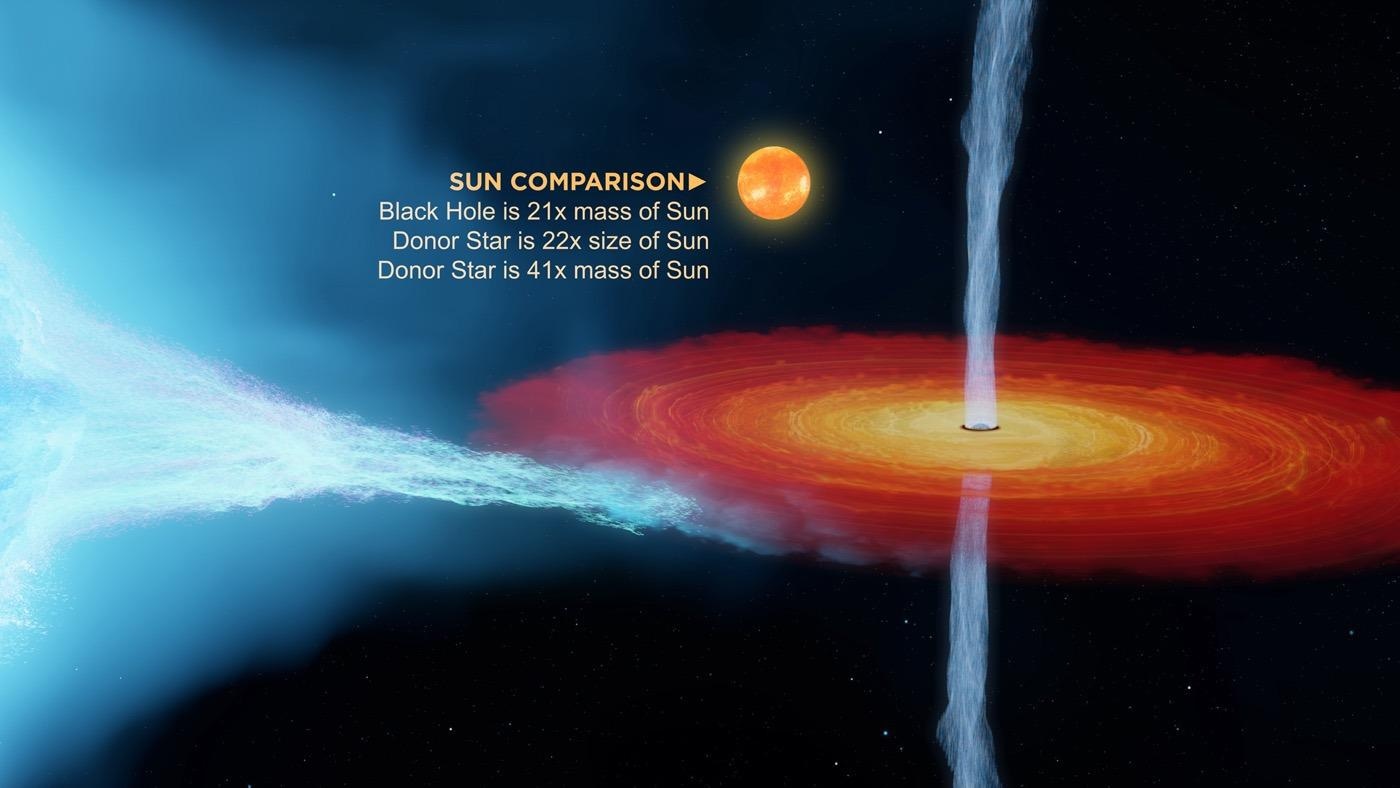Feb 19 2021
One of the nearest black holes to Earth is found in Cygnus X-1—a binary star system observed first in 1964. Fresh observations of this black hole, the first to be detected ever, have made astronomers question their knowledge about the most enigmatic objects in the Universe.
 Artist illustration to the Cyg X-1 system. Image Credit: International Centre for Radio Astronomy Research (ICRAR).
Artist illustration to the Cyg X-1 system. Image Credit: International Centre for Radio Astronomy Research (ICRAR).
Recently, an international team of researchers from the National Astronomical Observatories of the Chinese Academy of Sciences (NAOC) observed that the stellar-mass black hole in the Cygnus X-1 binary system features a mass 21 times that of the Sun and rotates at a speed close to that of light.
The research was published in the Science journal on February 18th, 2021.
The team employed the Very Long Baseline Array—a radio telescope with the size of a continent and including 10 dishes distributed across the United States—in combination with a clever method to quantify distances in space.
If we can view the same object from different locations, we can calculate its distance away from us by measuring how far the object appears to move relative to the background.
James Miller-Jones, Researcher and Professor, Curtin University and International Centre for Radio Astronomy Research
“If you hold your finger out in front of your eyes and view it with one eye at a time, you’ll notice your finger appears to jump from one spot to another. It’s exactly the same principle,” added Prof. Miller-Jones, who is the first author of the study.
Within a six-day period, the team observed a complete orbit of the black hole around its companion blue supergiant variable star. Then, they compared the new data with observations of the same system made in 2011 using the same telescope array.
The new observations and measurements indicated that the system is located farther than considered earlier.
The researchers used the new distance information to re-calculate the mass of the Cygnus X-1 black hole and found that it is over 20 times the mass of the Sun, which is a 50% increase over earlier estimates.
Prof. Lijun Gou from NAOC headed the spin measurement part of the study and is also a co-author of the study.
Using the updated measurements for the black hole’s mass and its distance away from Earth, we were able to confirm that Cygnus X-1 is spinning incredibly quickly—very close to the speed of light and faster than any other black hole found to date.
Lijun Gou, Professor, National Astronomical Observatories, Chinese Academy of Sciences
According to study co-author Prof. Ilya Mandel, who is a scientist from Australia’s Monash University and the ARC Centre of Excellence in Gravitational Wave Discovery (OzGrav), the black hole is so huge and rotating so quickly that it is, in fact, challenging astronomers’ knowledge on the formation of black holes.
“Stars lose mass to their surrounding environment through stellar winds that blow away from their surface. But to make a black hole this heavy and rotating so quickly, we need to dial down the amount of mass that bright stars lose during their lifetimes,” Prof. Gou added.
The life of the black hole in the Cygnus X-1 system started as a star with a mass nearly 60 times that of the Sun and broke down tens of thousands of years ago. Astonishingly, it has been orbiting its companion star every five and a half days at only a fifth of the distance between the Earth and the Sun.
Along with the Science publication, two other papers describing different aspects of this study were also published recently in The Astrophysical Journal.
Journal Reference:
Miller-Jones, J. C. A., et al. (2020) Cygnus X-1 contains a 21–solar mass black hole—Implications for massive star winds. Science. doi.org/10.1126/science.abb3363.